Brain foods are a topic that we could talk about for days. While each of the 12 brain foods we list here could have an article each their own, we have composed the most succinct content regarding the value each brain food brings to the table.
1. Fatty Fish: For Brain-Essential Omega-3s
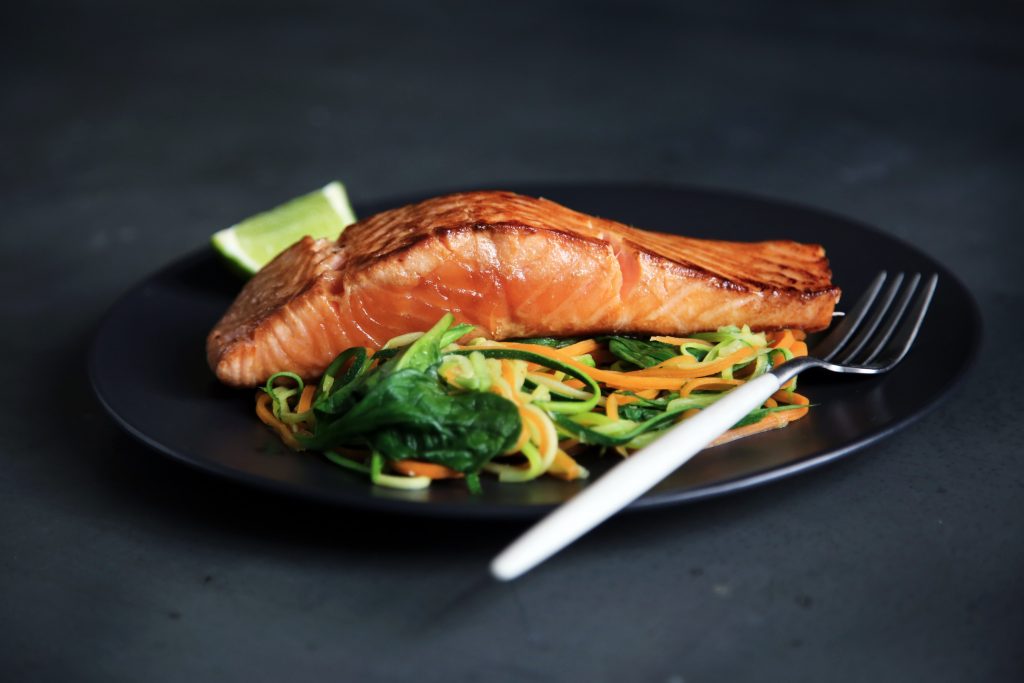
Fish deservedly has a reputation as a top-notch brain food.
It’s an outstanding source of protein which is needed to form mood-boosting neurotransmitters like serotonin and dopamine.
It’s also a great source of vitamin B12, an essential vitamin for a healthy brain and nervous system.
But where fish really shines is as a major dietary source of omega-3 essential fatty acids (EFAs), quite possibly the most important group of nutrients for your brain.
Unfortunately, typical modern diets are short on omega-3s.
It’s estimated that 70% of us do not get enough of them. (1)
Omega-3 EFAs are a key structural component of brain cell membranes and nerve cells.
It’s no exaggeration to say that the quality of your brain cells depends on the availability of these healthy fats.
Omega-3s are strongly anti-inflammatory.
This is important since chronic brain inflammation contributes to depression, anxiety, brain fog, and ADHD and even serious degenerative disorders like dementia and Alzheimer’s. (2, 3)
Eating fish is a proven mood booster.
2. Eggs: For Memory and Learning

Eggs are packed with protein, vitamin B12, and can be a significant source of omega-3 fatty acids.
Eggs are high in tryptophan, an amino acid that’s a building block of the “happiness” molecule (and neurotransmitter) serotonin.
Whole eggs are the #1 food source of choline, a B complex-related nutrient that 90% of us don’t get enough of.
Choline is a precursor of acetylcholine, a neurotransmitter that plays a central role in memory and learning.
If you feel like you are experiencing “senior moments,” you may be deficient in acetylcholine.
Adequate acetylcholine is critical for a sharp memory and for quick and focused thinking as you age — low levels have been linked to Alzheimer’s.
Choline is also the precursor of another important brain nutrient, citicoline.
Citicoline naturally occurs in every cell in the body, but is especially prevalent in brain cells.
It increases blood flow to the brain and enhances the brain’s ability to utilize blood glucose, its main source of fuel.
Unfortunately, eggs have gotten a bad rap for containing cholesterol but, in fact, your brain needs cholesterol.
Your brain is your fattiest organ — it contains up to 60% fat and includes 25% of your body’s total cholesterol.
3. Berries: Antioxidant Powerhouses
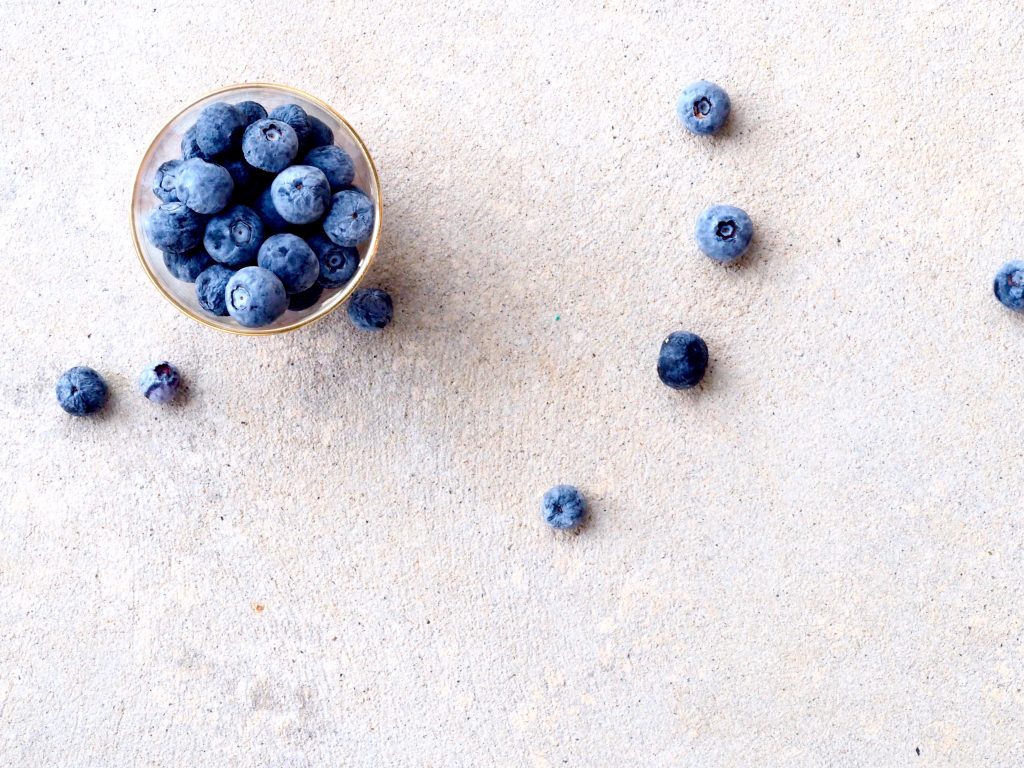
All fruits are loaded with vitamins, fiber, and phytonutrients, but berries are in a class of their own.
Berries of all kinds — blueberries, strawberries, raspberries, and blackberries — usually make it to the top of any brain foods list.
They are bursting with flavonoids, a group of potent antioxidants that protect brain cells from oxidative damage.
One group of flavonoids in particular, the anthocyanins, gives berries their beautiful colors.
Research suggests that flavonoids can improve numerous cognitive skills, including memory, learning, and decision making.
They may also prevent age-related mental decline and protect against Alzheimer’s disease. (40)
These substances promote the production of brain-derived neurotrophic factor (BDNF), a protein that stimulates the formation of new brain cells.
Low levels of BDNF are associated with several neurological and mood disorders including depression, bipolar disorder, and schizophrenia.
Berries also protect the brain from chronic inflammation.
Chronic inflammation shuts down energy production in brain cells leading to vague symptoms like mental fatigue and brain fog as well as recognized disorders such as ADHD, anxiety, and depression.
4. Avocados: Possibly the Most Perfect Food
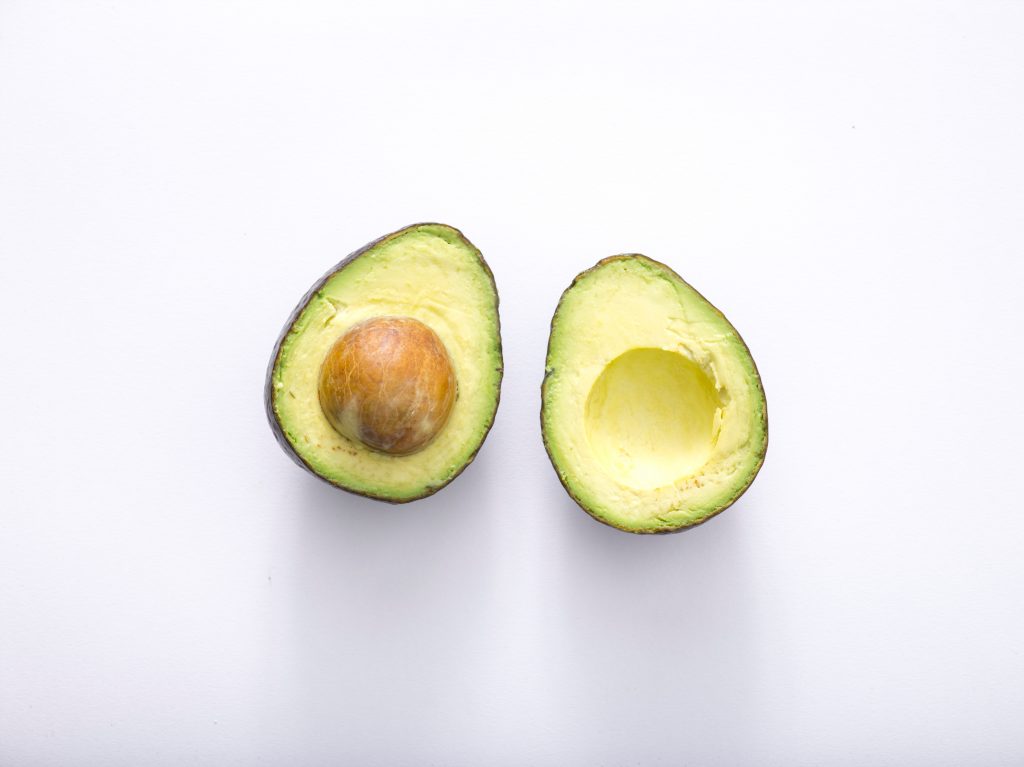
Avocados are a creamy, nutrient-dense fruit that some brain experts believe is the world’s most perfect food.
Curiously, botanists classify them as a berry — albeit a very big one!
Unlike other fruits that are mainly carbohydrates, avocados are 75% of mostly monounsaturated fats, the same healthy kind found in olive oil.
Monounsaturated fats support the production of acetylcholine, the memory and learning brain chemical we mentioned earlier in our Eggs section.
Avocados are an excellent source of vitamins that your brain needs like C, E, K, and the B complex vitamins.
They also act as a “nutrient booster” to aid the absorption of fat-soluble vitamins.
Avocados are high in tyrosine, an amino acid that’s a precursor to dopamine — the brain chemical that keeps you motivated and focused.
They improve blood flow to the brain and are anti-inflammatory.
The brain normally uses glucose for energy, but it is quite happy to burn healthy fat as a “super fuel.”
5. Kale: A Nutrition Bomb
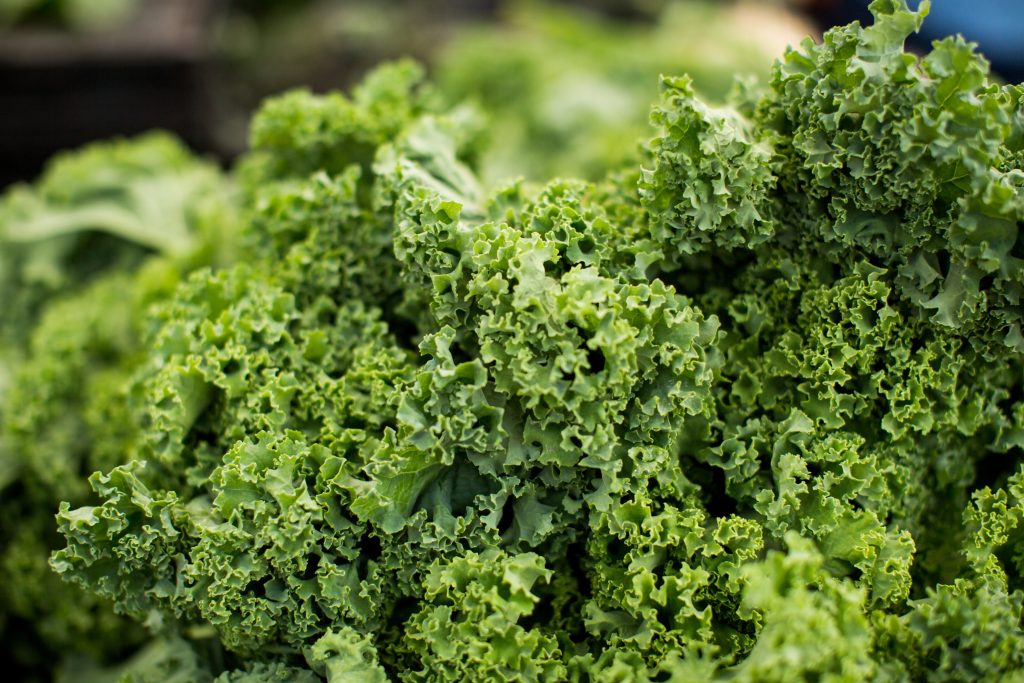
Even if you don’t love kale, there are compelling reasons to eat it anyway.
Kale is a nutrition bomb, one of the most nutrient-dense vegetables in the world.
It’s extremely high in brain-protecting antioxidants including beta carotene, flavonoids, and polyphenols.
One serving of kale contains nearly as much vitamin C as an orange.
Vitamin C acts as a natural antidepressant by increasing the neurotransmitter serotonin.
Kale is a first-rate source of B vitamins, especially folate which is key for brain development.
The B vitamins, often called the “anti-stress vitamins,” can halt memory loss, ward off brain aging, banish depression, and even help you live longer.
There’s now exciting evidence that they may help prevent Alzheimer’s.
An Oxford University study confirmed that vitamins folic acid, B6, and B12 work synergistically to reduce brain atrophy, improve brain function, and dramatically reduce brain shrinkage in the part of the brain most affected by Alzheimer’s.
Forgetting words becomes a problem for many of us as we get older.
Kale is one of the best sources of vitamin K, a nutrient essential for verbal memory.
Kale’s flavonoids are antioxidant, anti-inflammatory, and neuroprotective.
With 120 mg per serving, kale is one of the best plant sources of omega-3s.
6. Sea Vegetables: The Neglected Superfoods
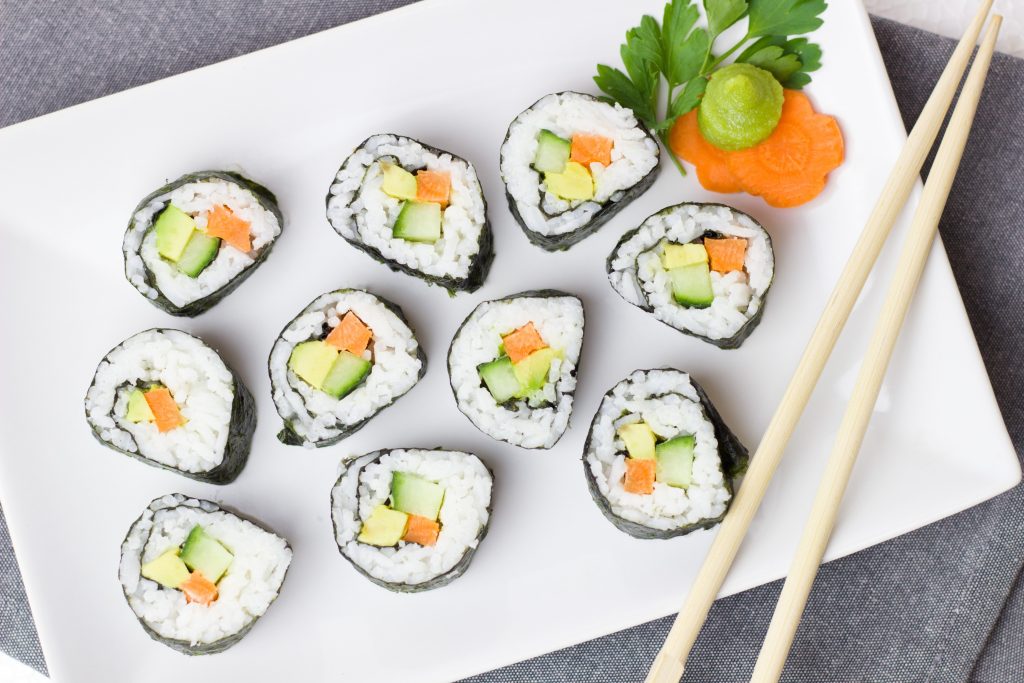
Sea vegetables are some of the most nutrient-dense foods on the planet but, at least here in the West, are a largely neglected group of superfoods for the brain.
The people of Okinawa, Japan may owe their extreme health and longevity, at least in part, to their regular consumption of sea vegetables.
Sea vegetables contain all 56 minerals essential for human health in a readily bioavailable form.
Some are a reliable vegetable source of vitamin B12 which is essential for brain and nerve health.
Nori, also called purple laver (Porphyra umbilicalis), is at the top of this vitamin B12 list.
Sea veggies are one of the few dietary sources of iodine, a mineral so rare in the diet that it’s added to table salt to prevent widespread deficiency.
When iodine was added to table salt in the US in the 1920s, there was a noticeable increase in average IQ.
Low iodine can be an underlying cause of hypothyroidism, a condition that can manifest as brain fog, poor memory, depression, and fatigue.
Sea vegetables are some of the best sources of tyrosine, the amino acid precursor of the brain chemical dopamine (avocados are a good source too).
Nori, the seaweed sheets used to wrap sushi, is a nutritional powerhouse high in choline, inositol, B vitamins, minerals, and taurine.
Taurine is an amino acid that stimulates the release of the neurotransmitter GABA (gamma-aminobutyric acid).
GABA is so important for enabling you to feel relaxed and happy that it’s sometimes called “nature’s Valium.”
When GABA is low, you can’t help but feel stressed out and overwhelmed.
7. Dark Chocolate: For Sheer Bliss
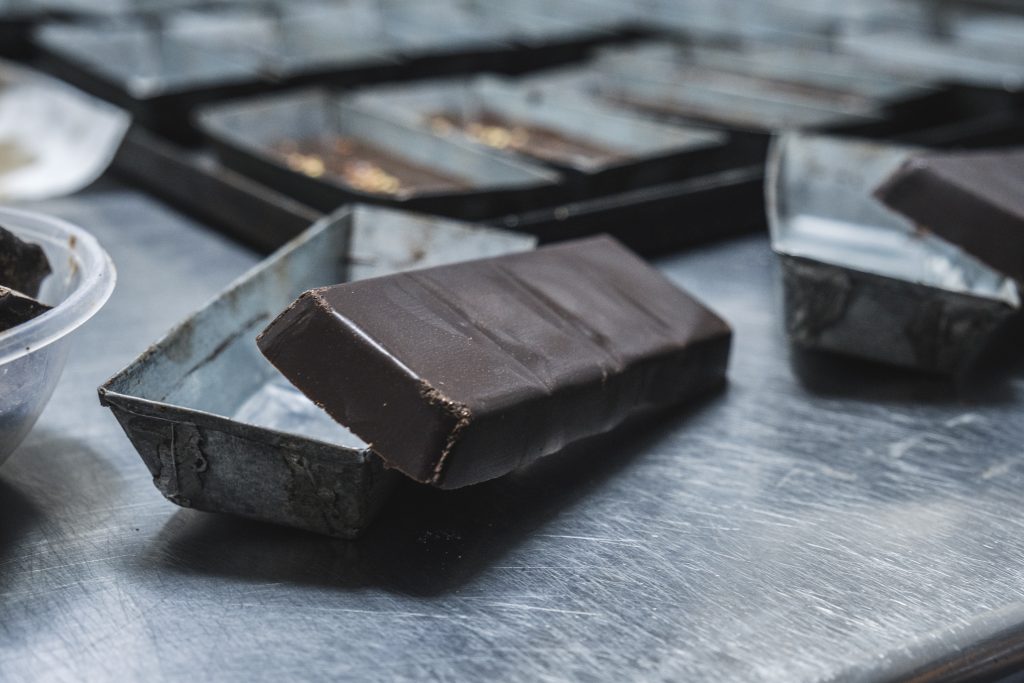
After kale and sea vegetables, you’re probably relieved to see a food you actually love on our brain food list!
Chocolate is one of the world’s favorite foods and is the #1 food that people crave.
There are over 300 known chemical compounds in chocolate.
Here are the main ones responsible for making you feel wonderful when you indulge in chocolate.
Chocolate is a great source of tryptophan, the amino acid precursor of serotonin.
It’s also an appreciable source of the anti-stress mineral magnesium.
Chocolate is one of the few dietary sources of anandamide, a naturally occurring neurotransmitter called the “bliss molecule.”
Anandamide binds to the same receptors as THC (tetrahydrocannabinol), the primary psychoactive component in marijuana.
Dark chocolate also contains phenylethylamine, a psychoactive compound dubbed the “love drug.”
It purportedly gives you a buzz similar to being in love.
Dark chocolate encourages the production of feel-good endorphins which bind to opiate receptors, causing feelings of euphoria.
There is a little caffeine in chocolate — enough to boost memory, mood, and concentration — but not enough to make most people feel wired.
8. Walnuts: The #1 Nut for the Brain
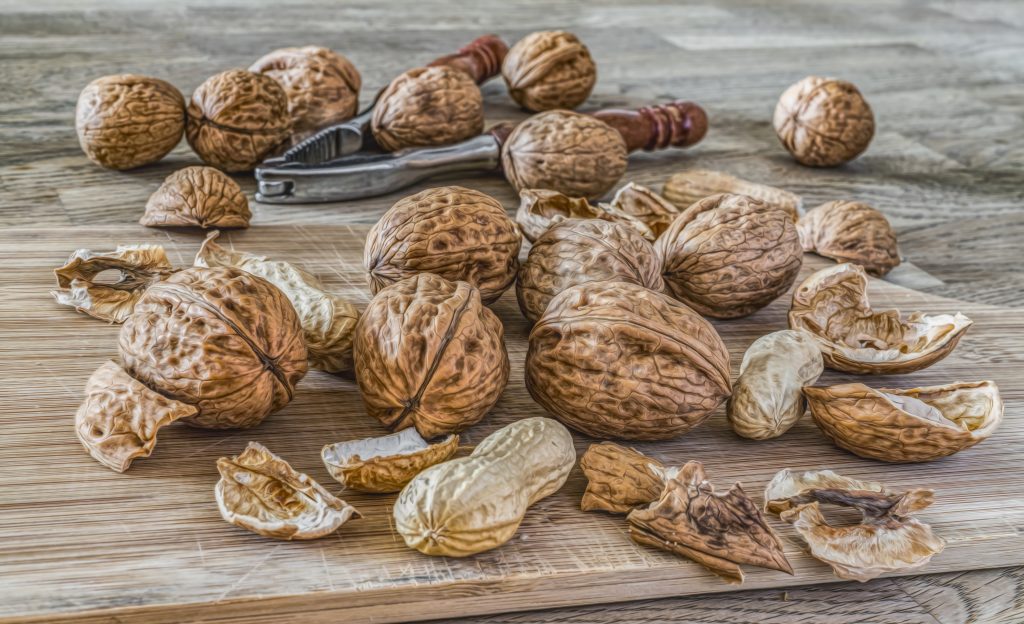
All nuts are brimming with protein, vitamins, and minerals.
People who eat nuts live longer, healthier lives than those who don’t.
While every nut offers brain benefits, walnuts are the undisputed champion.
Walnuts are one of the best sources of ALA (alpha-linolenic acid), the plant form of omega-3 fats. 2.5 grams of ALA per ounce, compared to .5g per ounce in the runner up, pecans. Other nuts such as peanuts or cashews contain virtually zero ALA.
They are the best among the few foods that contain mood-elevating serotonin.
Walnuts contain a unique polyphenol, pedunculagin, which has antioxidant and anti-inflammatory properties and may reduce brain inflammation.
Walnuts have the potential to reverse several parameters of brain aging.
Walnut extract inhibits the buildup of toxic beta-amyloid proteins found in the brains of Alzheimer’s patients.
One study on adults of all ages found that eating walnuts improved reaction time, learning, and memory recall.
9. Turmeric: Antidepressant, Anti-Alzheimer’s Spice
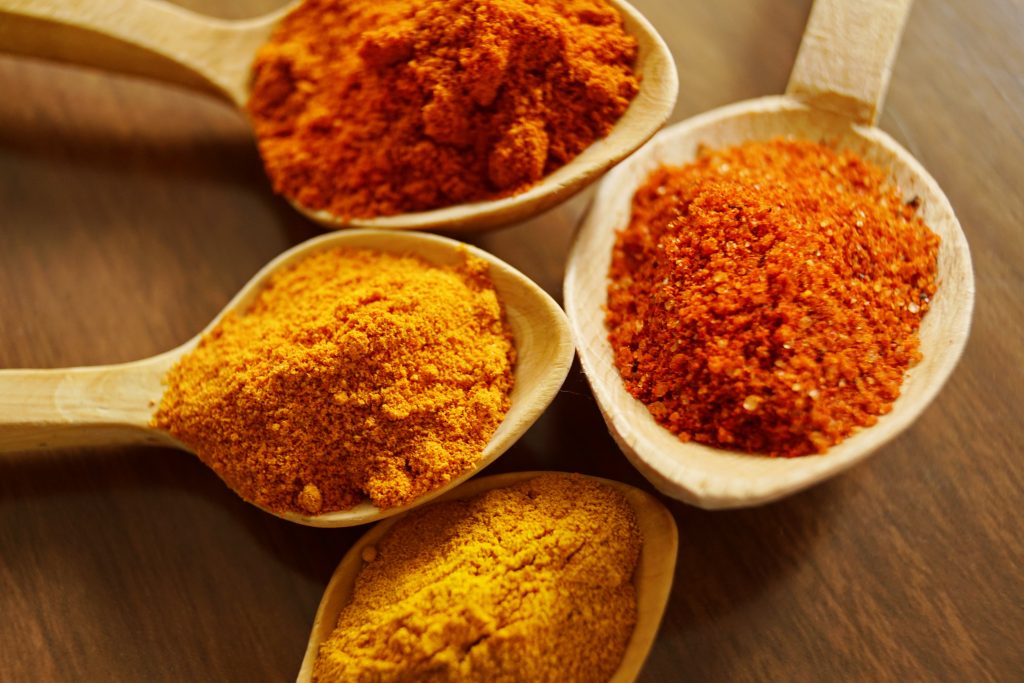
Most spices, like black pepper, cinnamon, garlic, ginger, saffron, and vanilla, are powerful antioxidants and provide some brain benefits.
But one spice that stands above the rest is turmeric.
Turmeric comes from the root of a tropical plant (Curcuma longa) native to India.
It gives curry powder its rich golden hue.
Cooking residue found on pottery shards reveals that it’s been used in cooking for over 4,500 years.
It’s also an important spice in Ayurveda, India’s 5,000-year-old natural healing system.
Turmeric contains over 100 known compounds, some of which have antioxidant, anti-inflammatory, and neuroprotective properties.
Turmeric has been found to work even better than Prozac for depression.
But unlike antidepressants, turmeric is safe, has no side effects, can be used indefinitely, and can be safely combined with other natural remedies for depression such as SAM-e or St. John’s wort.
10. Olive Oil: Key Ingredient of the Healthiest Diet
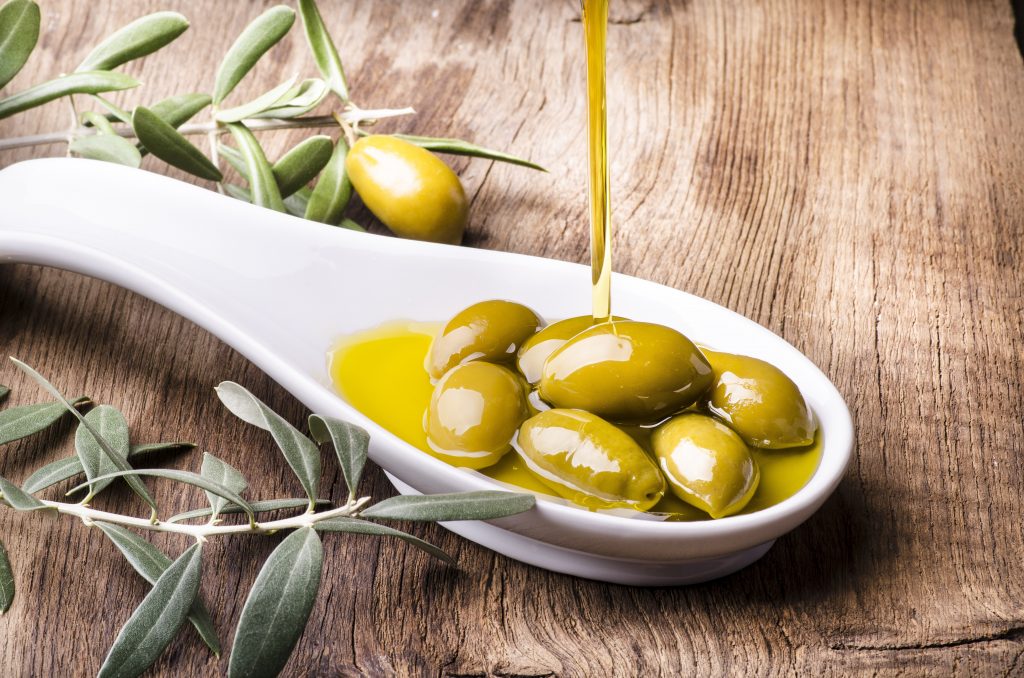
Olive oil is an integral part of the Mediterranean diet, widely believed to be the healthiest way to eat.
Olive oil’s “heart healthy” monounsaturated fats are equally beneficial for the brain.
Increased intake of monounsaturated fats (as discussed in our Avocado section) improves memory and other cognitive functions.
Olive oil contains over 30 phenolic compounds that are potent antioxidants and free radical scavengers.
There are also significant amounts of vitamins E and K in olive oil, both vitamins important for memory and preventing mental decline.
Olive oil raises levels of BDNF (brain-derived neurotrophic factor, see the Turmeric section) to offset depression and the effects of stress on the brain.
Oleocanthal, an anti-inflammatory agent unique to olive oil, helps clear the brain of the beta-amyloid proteins associated with Alzheimer’s.
Following a Mediterranean diet high in olive oil reduces the risk of Alzheimer’s up to 40%.
Following the MIND diet, a slightly modified version of the Mediterranean diet, reduces the risk of Alzheimer’s by more than 50%.
One last benefit of olive oil is what it doesn’t contain — unhealthy trans fats.
Vegetable oils like canola and soy are extracted with heat and chemical solvents which creates these dangerous compounds.
11. Coconut Oil: For Instant Brain Energy
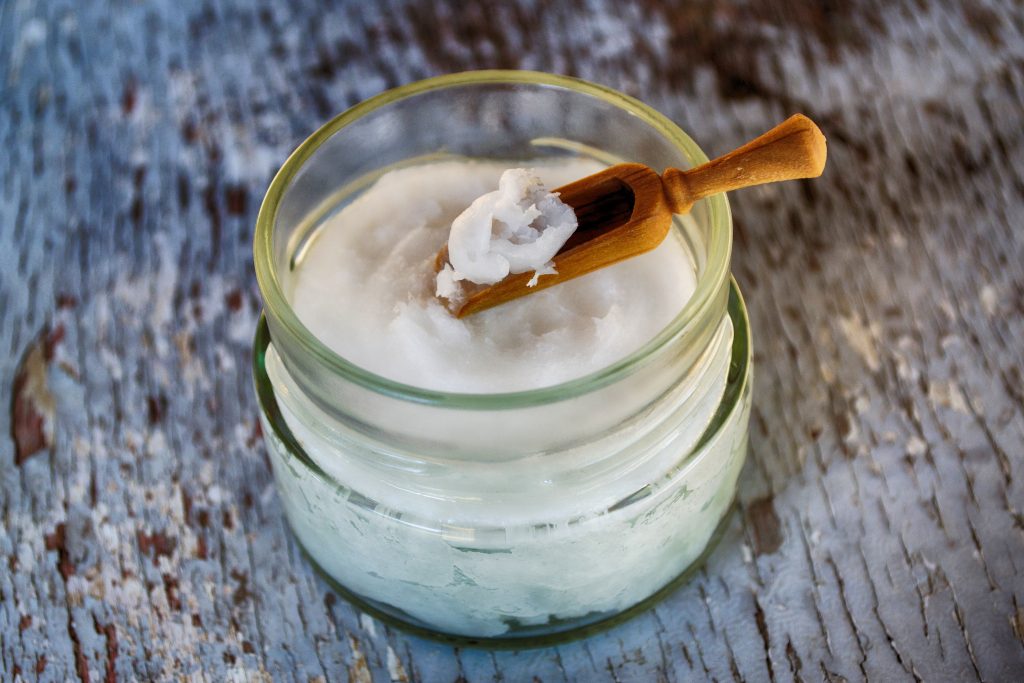
Coconut oil is another excellent brain food.
However, in the past, it has been demonized for its high saturated fat content.
In reality, people who consume coconut oil as part of their traditional diet are extremely healthy.
People of the Pacific Islands so highly regard coconut as both food and medicine that they call the coconut palm tree the “tree of life.”
The main reason coconut oil is considered a brain food is its high concentration of MCTs (medium-chain triglycerides).
MCTs are found in human breast milk and are added to baby formula since they’re essential for babies’ developing brains.
Your brain’s usual source of fuel is glucose, but the MCTs in coconut oil get broken down into ketones which feed the brain directly, bypassing glucose metabolism.
It’s this property that makes coconut oil a promising treatment for Alzheimer’s which some experts consider a third form of diabetes — a “diabetes of the brain.”
12. Fermented Foods: Nourishment for Your “Second Brain”

One of the weirdest and most fascinating neuroscience discoveries of recent times surrounds the microbiome, the bacteria that reside in our intestinal tract.
This community of microbes has a powerful and unexpected influence over our brain, causing science to refer to the gut as the “second brain” or the “backup brain.”
Gut bacteria make over 30 neurotransmitters including serotonin, norepinephrine, acetylcholine, dopamine, and GABA.
These bacteria influence your health, your mood, and even the kinds of decisions you make.
Some neuroscientists are calling this discovery a paradigm shift in our understanding of the brain.
Ideally, there’s a normal balance of both “good” and “bad” bacteria in your gut at all times.
But this balance can quickly get out of whack from antibiotics, stress, and even the food you eat.
An overabundance of bad bacteria creates toxic byproducts called lipopolysaccharides which have numerous negative effects on your brain.
A dysfunctional microbiome can be the root cause of a multitude of brain-related conditions including ADHD, anxiety, autism, depression, carb cravings, memory loss, concentration problems, and chronic inflammation of the brain.
But you can encourage a healthy balance of intestinal bacteria by adding fermented foods to your diet.
Virtually all healthy traditional diets wisely incorporated some fermented foods like yogurt, kefir, sauerkraut, kimchi, tamari, and miso.
These foods provide the good bacteria, while prebiotic foods provide the proper nutrition, especially prebiotic fibers, for good bacteria to grow and flourish.
Foods high in these prebiotic fibers include asparagus, Jerusalem artichokes, bamboo shoots, bananas, barley, chicory, leeks, garlic, jicama, lentils, mustard greens, onions, tomatoes, and yacón, a natural sweetener.
Just eating prebiotic foods can reduce stress, anxiety, and depression.
For more articles like this please sign up for our eTips by liking us on Facebook and giving us your email for our Newsletter.





